“It’s very serious”: BAR ITALIA’s THE TWITS
|Phillip Pyle
Over the past few years, the enigmatic British band bar italia has traveled as a whisper across internet music forums and a name plastered on fliers for shows at legendary London pubs such as Shacklewell Arms and Camden Assembly. Coming onto the scene with their debut EP in 2020, the band—composed of Nina Cristante, Jezmi Tarik Fehmi, and Sam Fenton—immediately gained a niche audience. Releasing their first three projects, ANGELICA PILLED, Quarrel, and Bedhead, on Dean Blunt’s underground label World Music, bar italia was quickly associated with a contemporary form of hypnogogic music associated with London and the likes of Blunt. This nebulous movement, known for its pastiche of samples, deliberately unkempt production, and metacommentaries on cultural production under capital, feels like the extension of the hauntological artists that fascinated Mark Fisher and Simon Reynolds in the early aughts. But it is also a reflection on our newly post-ironic condition.
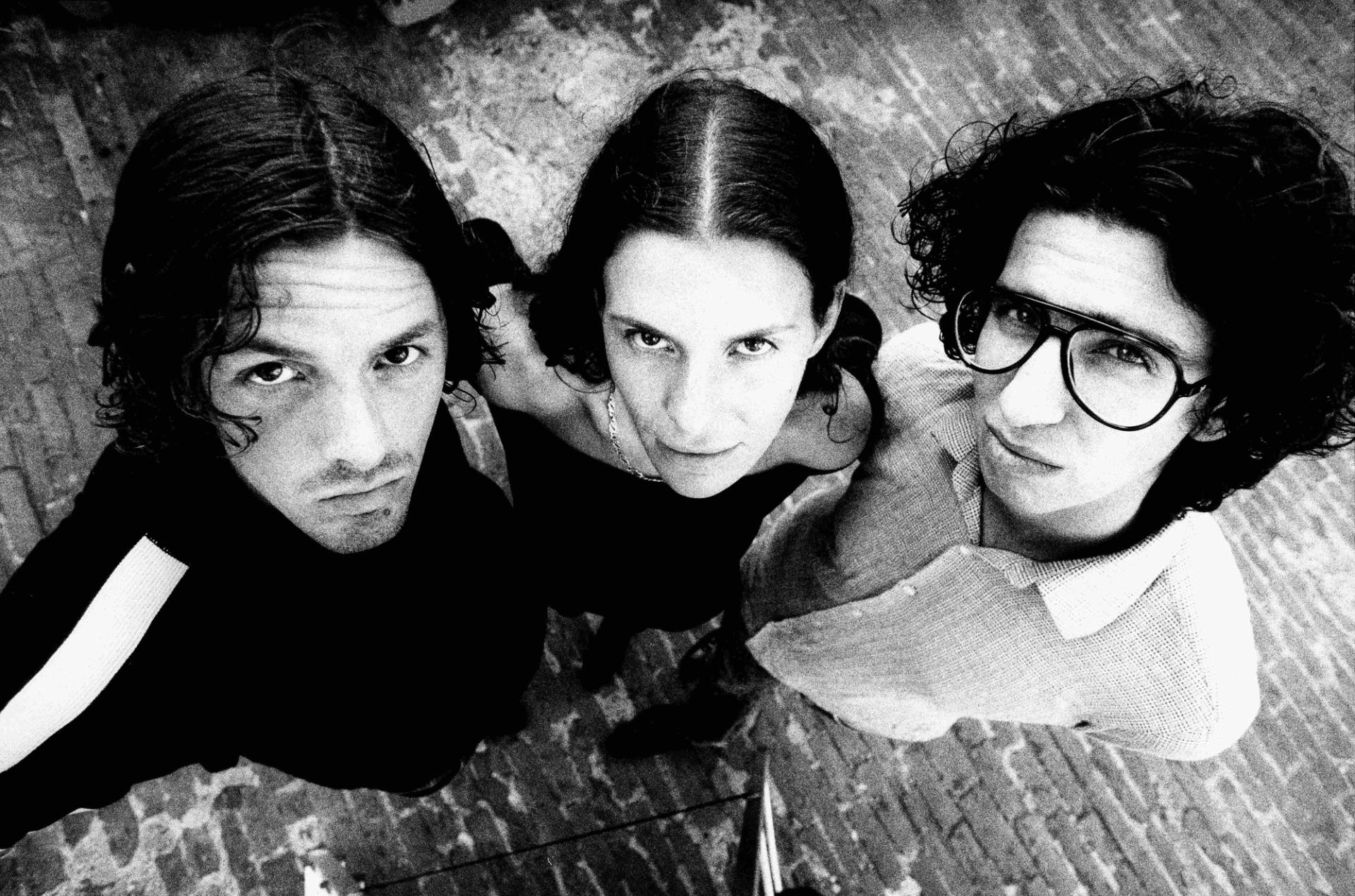
The problem with musical categorization is that, often the most exciting acts associated with a genre or movement break from it—imagine Bowie without the Berlin Trilogy, for instance, a phenomenon that would have never occurred had he stubbornly stuck to his glam rock persona. And this break, though a slighter one, is exactly what bar italia has done. This past May, after signing to Matador Records, bar italia released the 15-track Tracey Denim, where the band abandoned their short and pithy songs for a more sophisticated, albeit still evolving, sound. If, on Bedhead, the band hauntingly and iconoclastically referenced The Cure on tracks such as “Killer instinct”—a slowed-down, abstracted cover of “Boys Don’t Cry” that sounds more like a bonus track on the score for Robert Eggers’ The Lighthouse (2019) than an homage to 80s goth rock—then, on Tracey Denim, bar italia opted for a more gestural approach to their touchstones. The references were still there but they now took a backseat to bar italia’s own slithering compositions.
As their songs have lengthened, bar italia’s music has resonated with larger audiences. After selling out a handful of shows in New York and LA, bar italia entered this fall with even bigger plans. Just before embarking on a three-month tour across Europe and North America, they announced their second album of the year, The Twits, set to release November 3. I talked with bar italia on Zoom on the night of their show at Covo Club in Bologna. They answered the call in a cramped, sticker-plastered green room and were quite reticent at first. As our conversation went on, however, their reluctance and even outright dismissal of some of my questions gave way and ended with us discussing our birth charts.
PHILLIP PYLE: The Twits isn’t exactly sunny. What drew you to record the album in Mallorca?
SAMUEL FENTON: We were looking for somewhere, for a house more than anything.
JEZMI TARIK FEHMI: That wasn’t in the UK. We wanted to find somewhere cheap and isolated.
PP: Artists who are in the underground or who simply refrain from revealing their whole personal lives on social media often attract some of the most intense or weirdest fan attention. How do you manage scrutiny from fans?
JTF: You don’t really know if you’re not on social media. The only way I know about it is seeing kids with tattoos.
NINA CRISTANTE: It’s not that intense in all honesty.
SF: You don’t have to manage it really.
NC: It exists underground.
PP: I’ve seen you guys twice, at EartH in London and then at Jericho Tavern in Oxford—
JTF: Did you see Colin Greenwood? It was funny seeing him standing next to a mural of himself.
PP: Yeah, I did! Anyway, I was especially interested in the fact that there were no words spoken before the set, between songs, or after the set. Why don’t you speak?
SF: We’ve just got awful banter.
JTF: As you can probably tell by now… But also, in terms of audience relationship, I think a lot of people look at it as us being rude or whatever, but we’re smiling at them the whole time.
NC: It’s not confrontational.
JTF: I think people just realize we’re quite shy.
NC: We just need to get tighter between the songs and then people won’t even notice. There’s no intended awkward silence, it just happens… We do have banter now. There’s something to say every time something goes wrong.
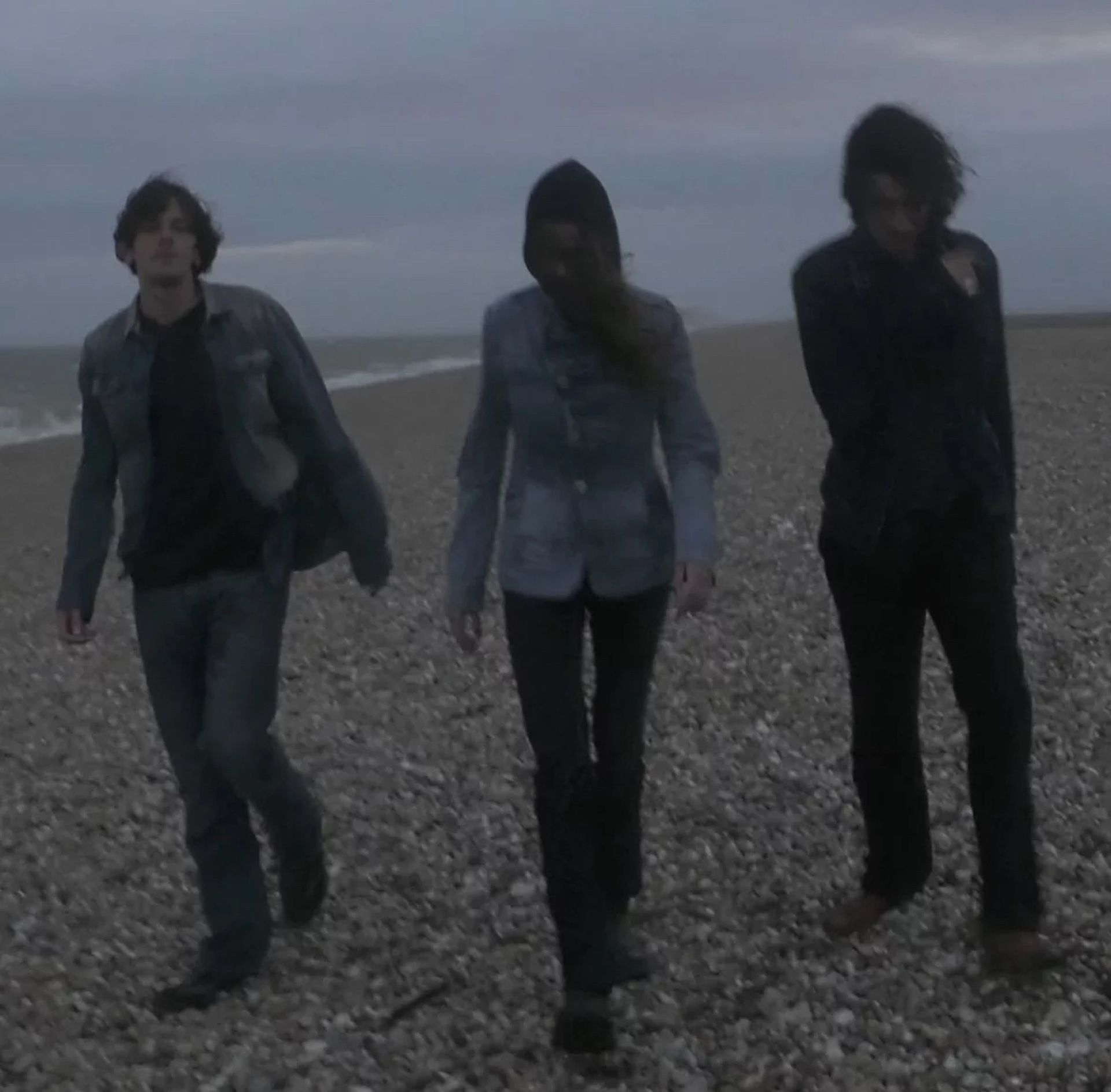
PP: The video for “my little tony” felt much more visible or embedded in a community. I’m interested in this shift. What’s your relationship to visibility like?
NC: Do you think we’re becoming more visible? Because I’m pretty sure you can see less of us. Like, we’re barely there. In “Banks” or “Miracle Crush,” we’re singing to the camera. I see where you’re coming from because I’ve read enough reviews talking about how mysterious we’ve been, but I’m pretty sure we’ve been showing our faces since day one.
JTF: Day seven. [Laughs]
PP: The fact that there were more people in it made it more visible in a way. It felt like a glimpse into a scene or the community that you surround yourself in. Whereas the previous videos were more isolated. There was a visibility for the band members, but it offered no glimpse into the community that it was made in.
JTF: That’s what it is. It’s more visible in terms of being situated between other people, as opposed to just being us.
NC: Yeah, I think we’d been wanting to do a party video for a very long time, and we’re getting the means to do it now. You’re right, there is community, people around us.
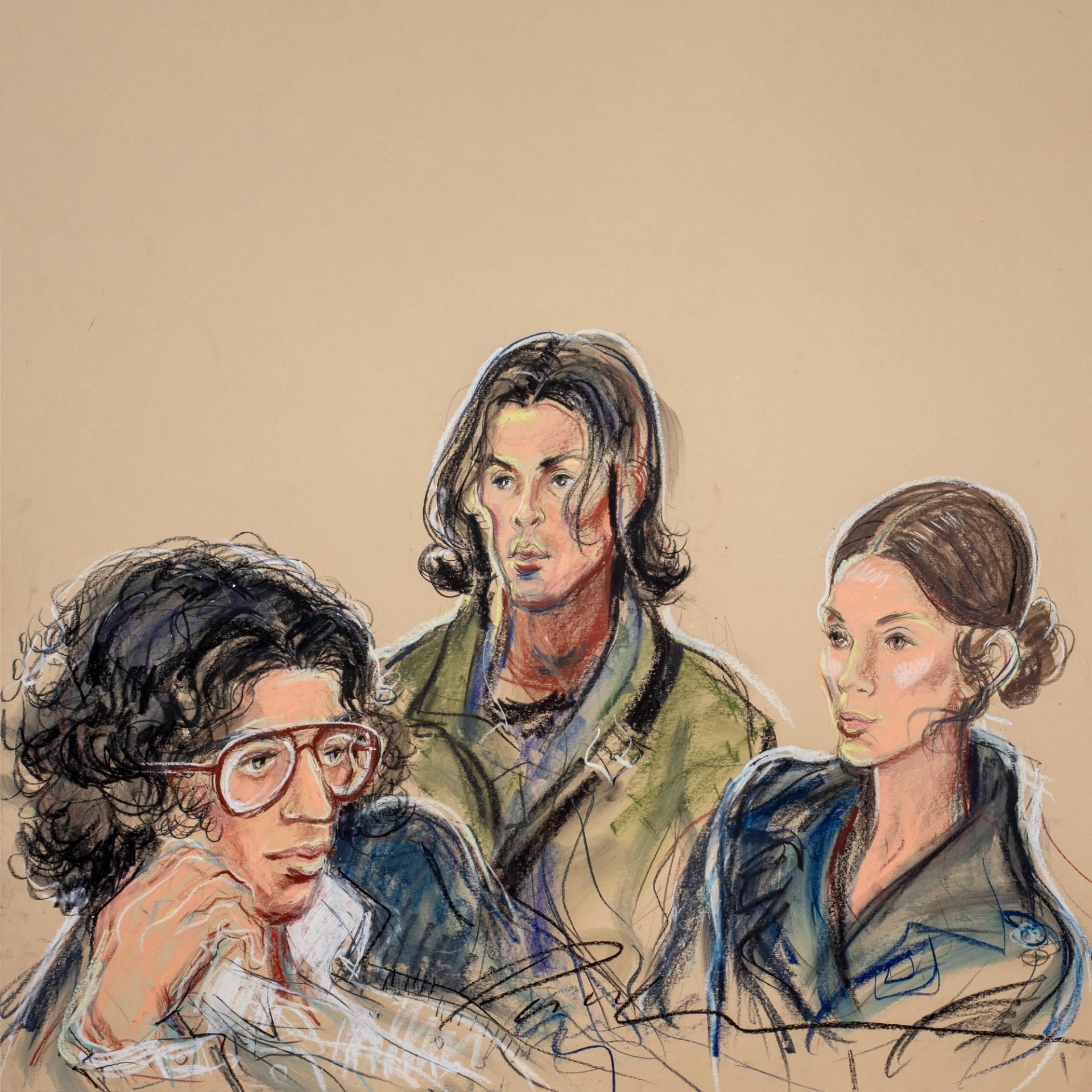
PP: You all have very different vocal delivery styles. How do you play off one another’s voices when writing songs?
NC: It’s quite organic.
SF: We all think of and write about different things, and are inspired by different things, so we just let whatever the conflict is happen naturally. We’re aware they’re playing off each other but we’re not endlessly trying to construct them together.
PP: So, you don’t ever write for each other’s vocal parts?
JTF: I mean, someone will sometimes say something like, “try that.”
NC: “Change a couple of words here and there.”
JTF: “Be less problematic.” [All laugh]
PP: There are such different qualities to the vocal recording, too. Sometimes it’s distant and has heavy reverb surrounding it, at other times it’s intimate and close.
SF: That depends on what the specific line demands. Some lines really want reverb, some don’t.
PP: Sounds and references from 80s and 90s British indie and post punk float around in all your projects, including Double Virgo (Jezmi and Sam) and NINA. I’m curious if you’re conscious of the sounds that you’re referencing?
JTF: No one’s going into it saying, “Let’s make a trip hop song.”
NC: And we all have different reference points, which I think is good in the end.
PP: What’s been inspiring you the most recently?
SF: Jack Harlow.
NC: [Laughs] Actually, no. Doja Cat.
PP: Are there any other things that have been inspiring you?
NC: I went to a really amazing film by Tarkovsky called The Sacrifice and watched it on 35 millimeter. I’m actually quite film ignorant, but I went to see it at the cinema, and it was incredible.
SF: I remember you said the textures of the film were doing a lot for you. You were saying it wasn’t even necessarily the themes, it was the texture, which I thought was interesting.
PP: Your songwriting and imagery have a heavy surrealist element to it. Do dreams, memories, and the unconscious have a great influence on your lyrics, approach to genre, and visual direction?
SF: I think so. I think that’s an area where we really meet. The three of us have very different subconsciouses obviously but we also have a really strong interest in each other’s subconscious, and there’s a meeting of that.
PP: Do you have dream journals?
NC: TMI.
SF: I wish I did. I’m just not organized enough.
JTF: I got it all up in the folder of my brain.
NC: In the folds of my brain. [Laughs] I do have a diary. I couldn’t resist saying that: “I have a diary.”
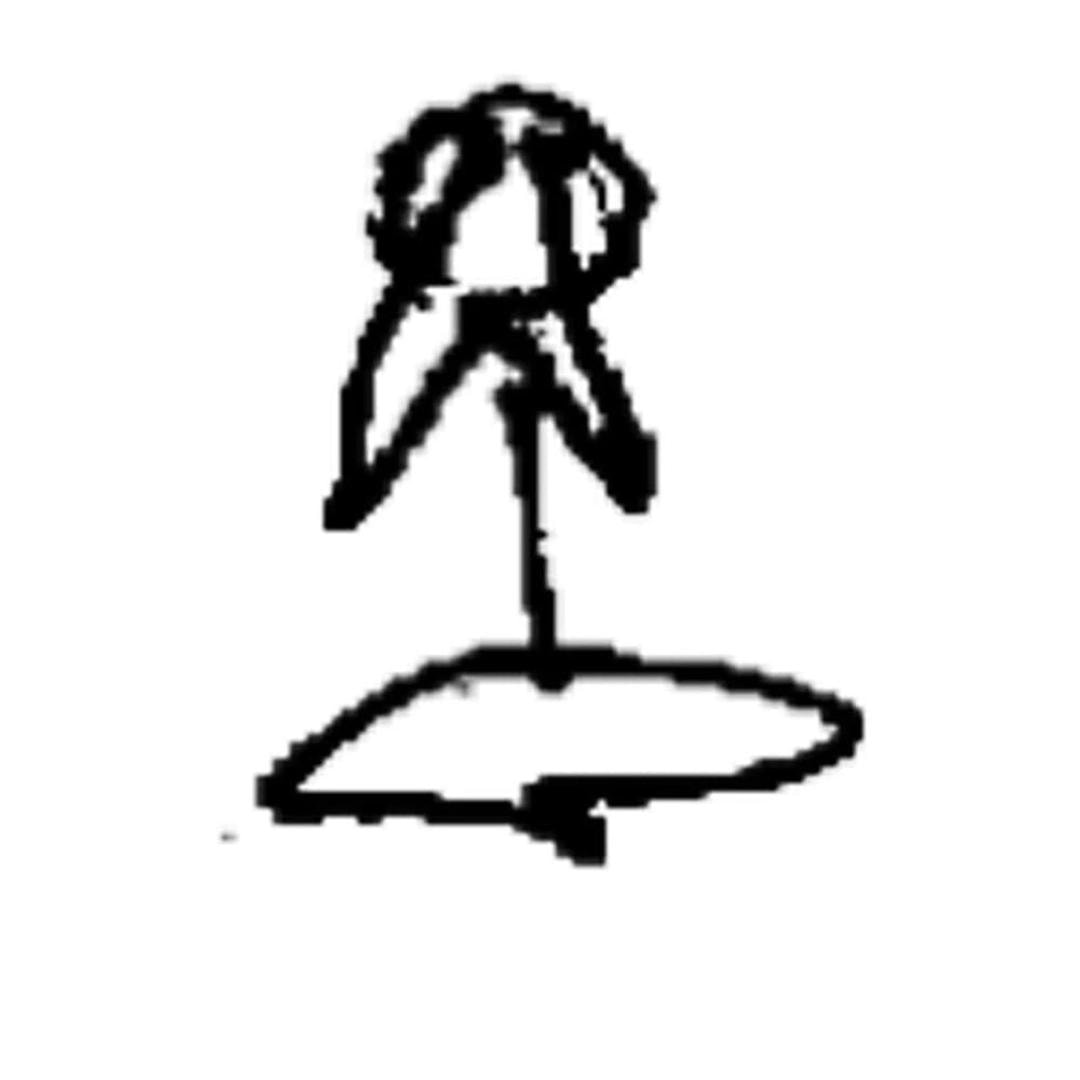
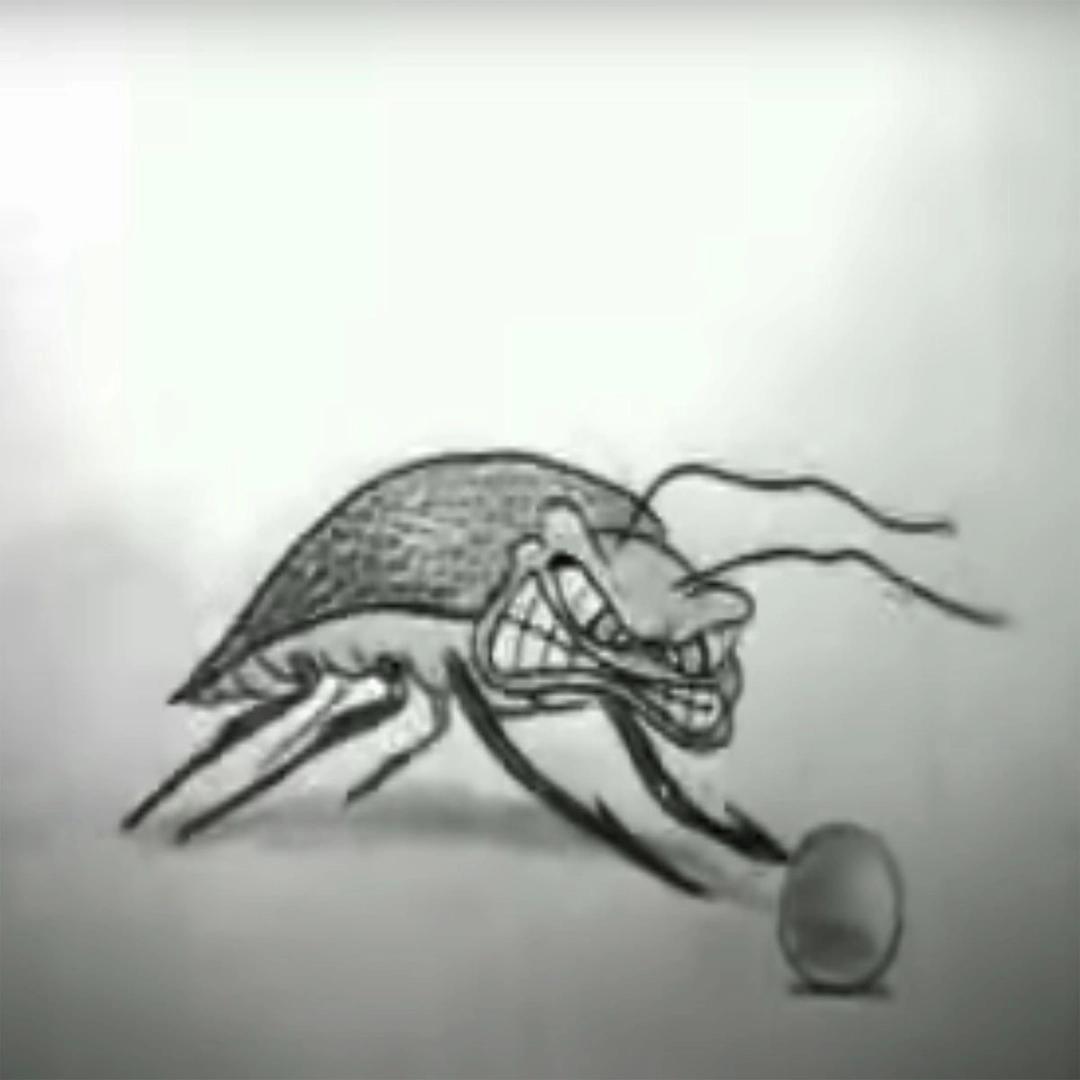
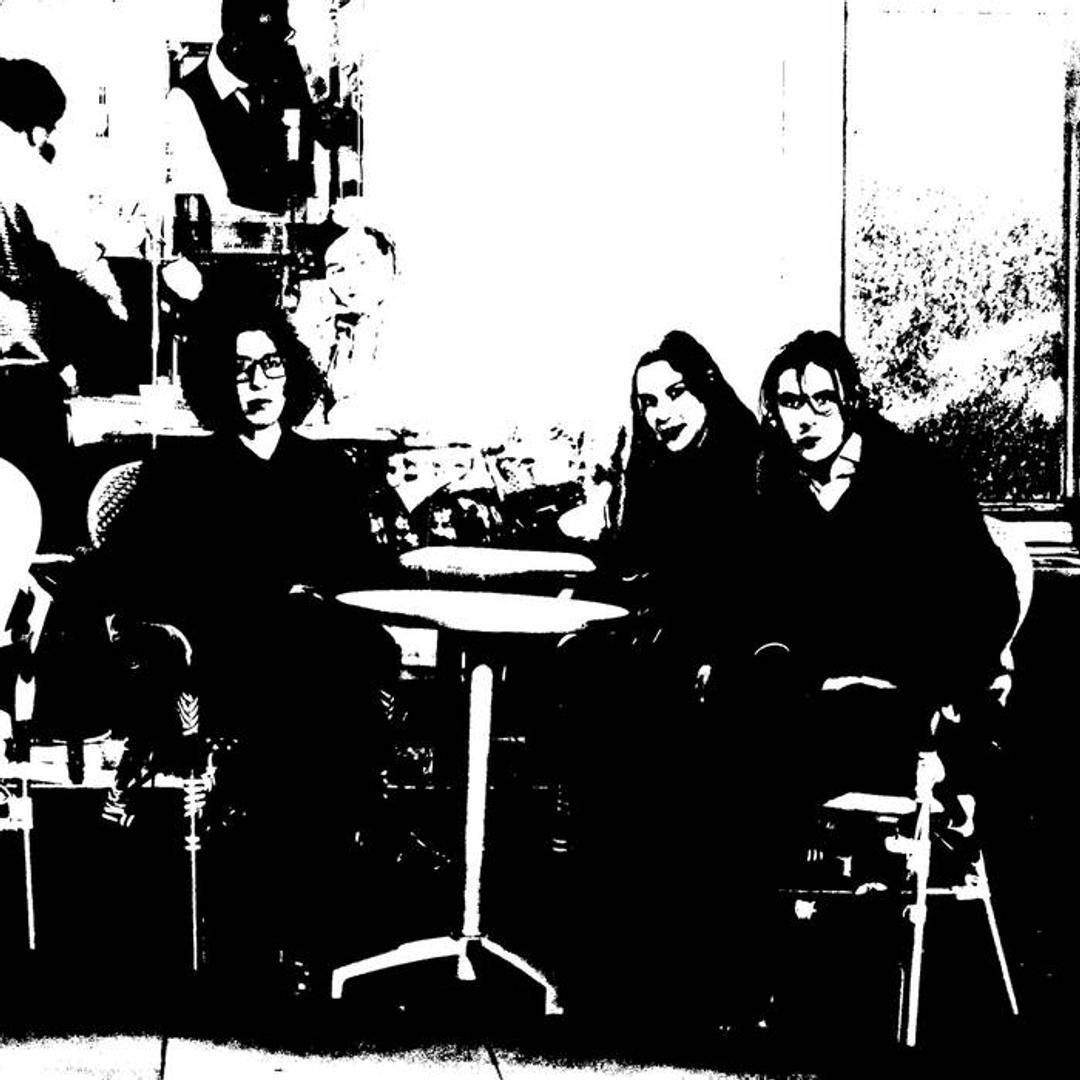
PP: Your projects always have a song with a clear irony or tension between the title and lyrics. I’m thinking of “Horsey Girl Rider” or “Real house wibes (desperate house vibes)”—
NC: I don’t know what you mean. It’s very serious.
PP: I mean, it could be incredibly earnest. How important is humor to you?
NC: Very important.
JTF: We barely get along, but we do find each other funny. Most of the time, when we make music, we’re having a good time.
SF: No one’s sitting pensively scowling in the corner.
PP: Do a lot of things start as jokes?
SF: I think they often turn into jokes. A lot of things start seriously and then we realize how funny they are and then we push that even further…We’re really into Daoism. [Laughs]
JTF: Daoism is about humor.
PP: But with titles, specifically?
NC: I mean, come on, what do you think?
JTF: Why waste a good opportunity? The title days are always good.
SF: But, also, it’s a texture thing. Sometimes a certain humor creates a texture that, when combined with the music, creates a very interesting effect.
NC: The titles have to be good. Also, “Real house wibes (desperate house vibes)” was a plan B, actually.
JTF: Oh, we had the best title for that.
NC: But you’ll never know. No way.
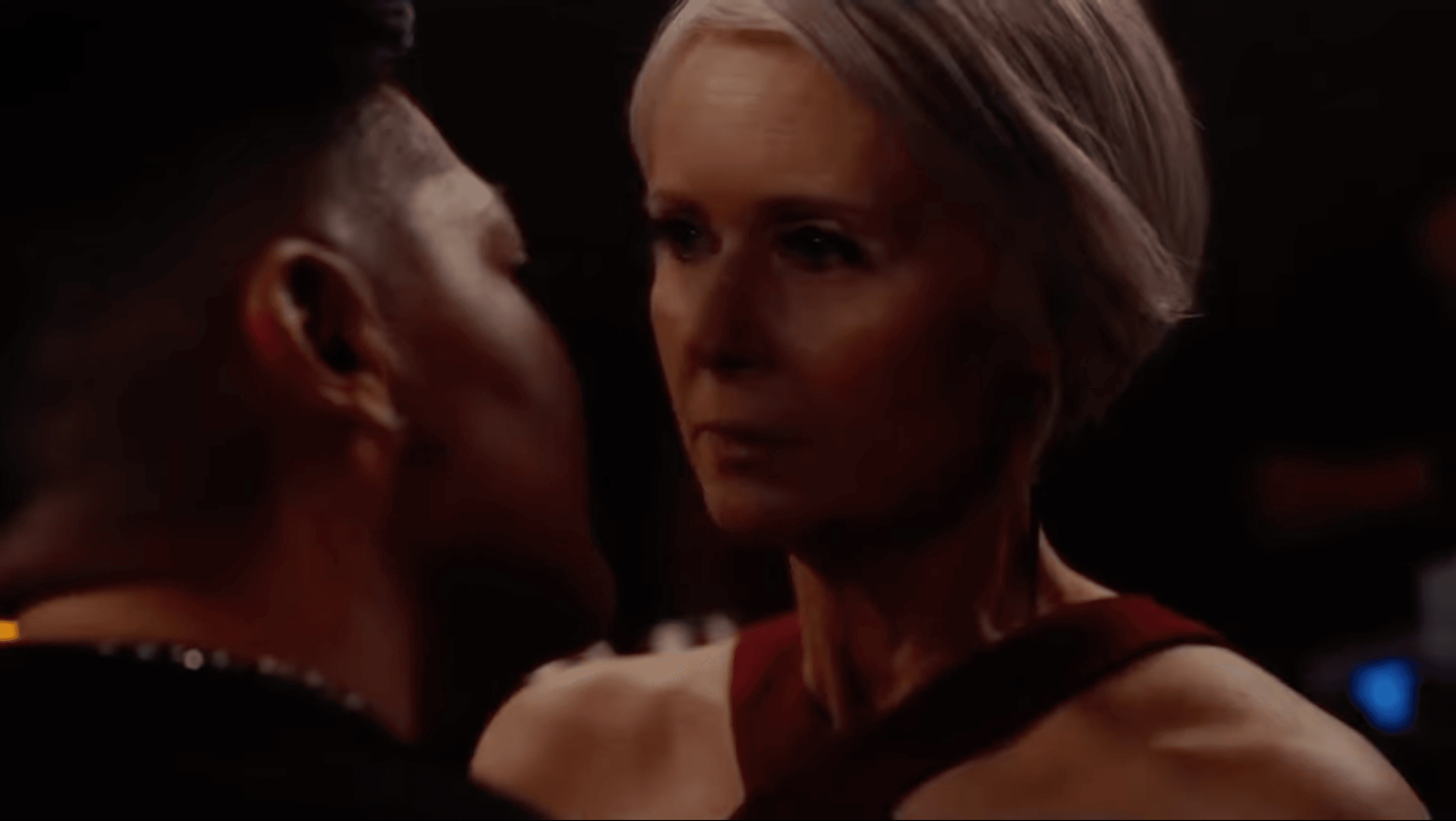
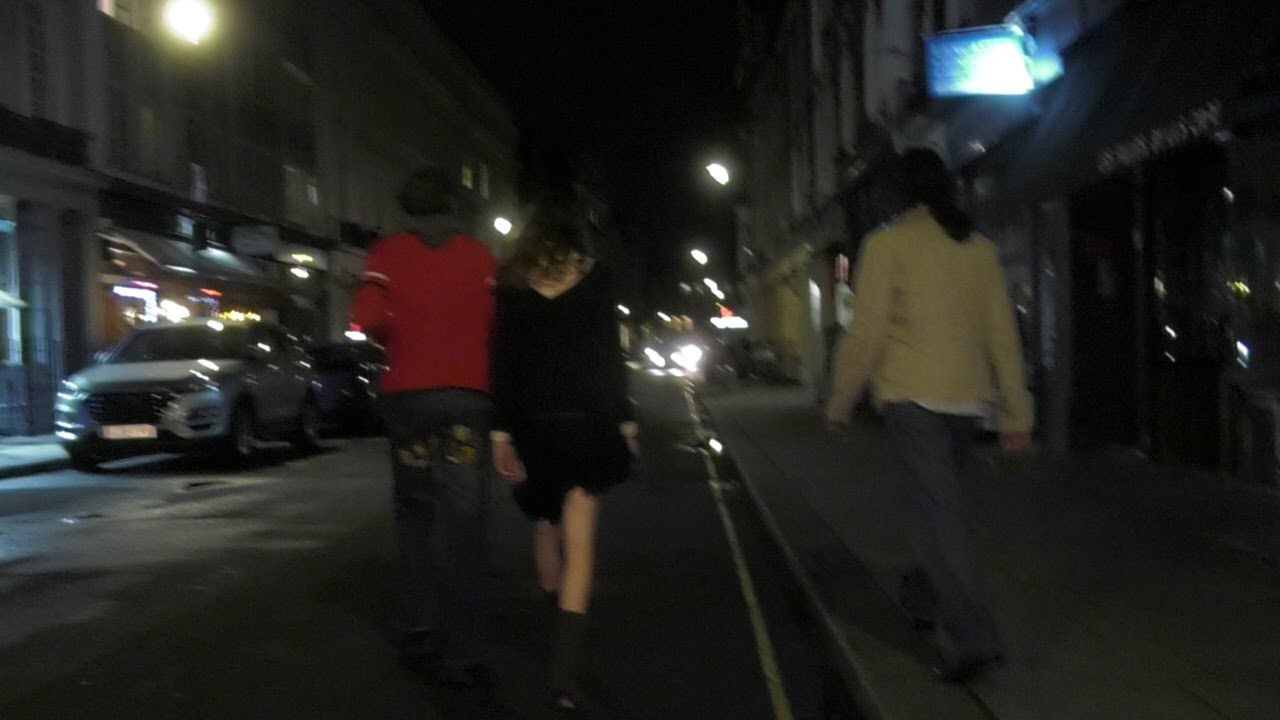
PP: The press release described “sounds like you had to be there” as containing “the band’s most sweetly optimistic musical gesture.” I’m curious if optimism is important, and whether you think that’s an optimistic song or not?
JTF: We didn’t write that.
SF: Well, you have to be optimistic.
JTF: You don’t have to be. If you’re not, you’ve got to surround yourself with optimistic people.
PP: In the final track, “bibs,” all your voices are in unison, which is kind of rare for you. But at the same time, the feedback goes awry and this relationship between your coming together and this crazy feedback suggests it’s not really a peaceful unison of voices.
SF: Say no more.
NC: Yeah, say less.
SF: Honestly, you’ve answered it way better than we could’ve...
PP: I am wondering, though, when singing about emotionally sensitive topics or themes, how you approach it as a trio instead of as solo artists? Does it have a different effect?
SF: Well, there’s two sides to that. One is aesthetic. There’s a certain sound of three people singing together. It’s very pleasing sometimes. But then, there’s also the stuff underneath that informs why it feels pleasing… and that we don’t know, but sometimes we feel compelled to do it.
Singing together does make us vulnerable. We’re supporting each other and we’re kind of scaring the shit out of each other at the same time.
NC: I really like singing on lines that I haven’t written and thinking about the meaning of it while doing it. But that’s about it. It’s a fun exercise.
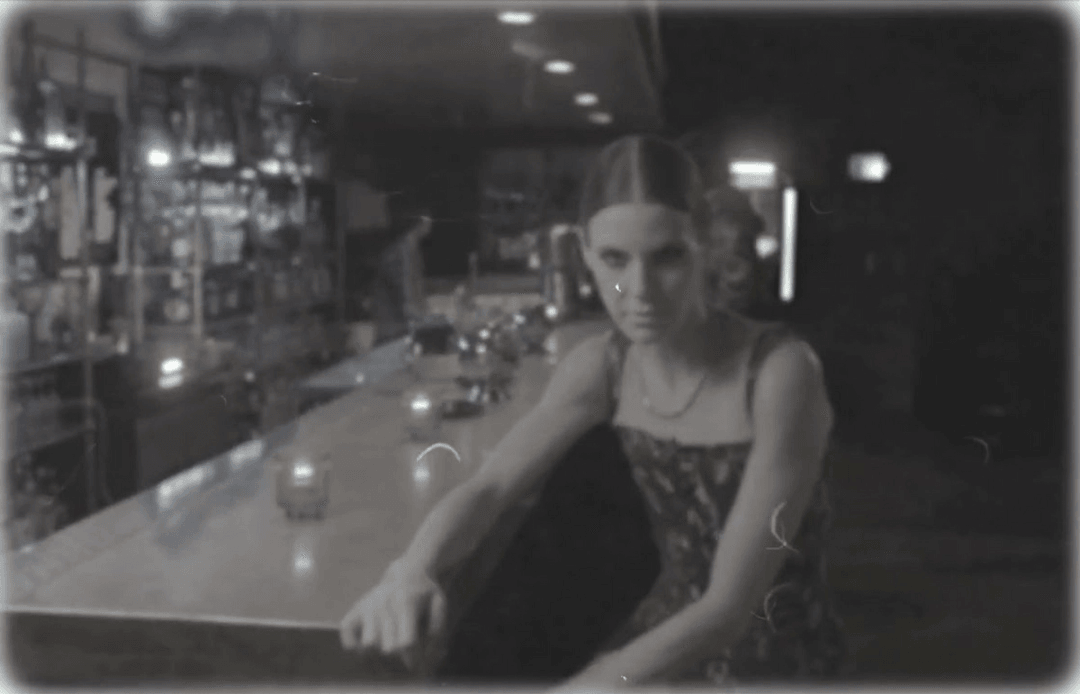
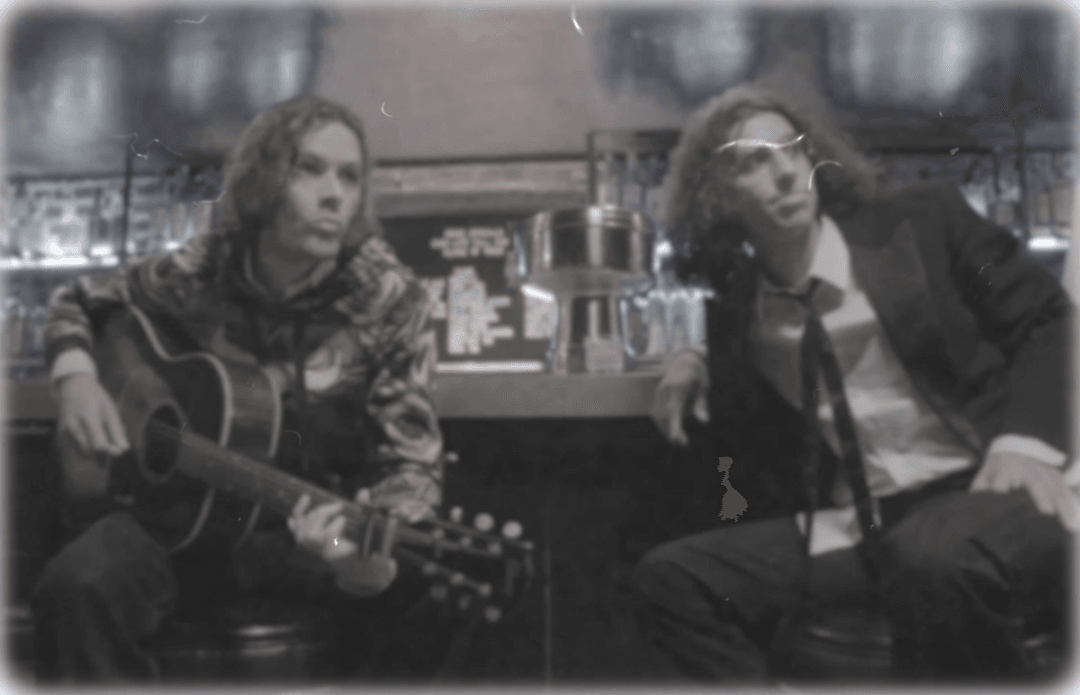
PP: I have to know if you’ve played your music for the owners of bar italia.
NC: We haven’t told them anything about it yet.
SF: They’re not going to give a shit. They’re a legendary institution.
NC: They’ve seen everyone.
JTF: It was literally by accident—do you know what I mean?
SF: Yeah, it just happened to be cool and hit the spot.
NC: They’ve got better T-shirts than ours.
JTF: God, that’s true.
SF: Yeah, but they charge a lot more for them. The coffee’s terrible too.
JTF: They know it’s terrible. I was in there and the woman said don’t get that. It’s horrible. They know.
NC: They do have really good late-night paninis. And you can get a schnitzel sandwich… What star sign are you?
PP: What do you think?
NC: I don't know.
JTF: What star sign are you?
PP: Taurus. Leo moon, Leo rising.
JTF: That's probably a good trait for a journalist.
SF: Yeah, never back down.
PP: What are your signs? Or is that—
NC: What do you think Double Virgo's [Jezmi and Sam’s other band name] are? [Laughs]
JTF: Sam’s not even a real one.
PP: Nina, I don't know what sign you are. Should I guess?
NC: Please don’t say something that’s going to piss me off.
PP: It's going to piss you off?
NC: Only if you say some shitty sign.
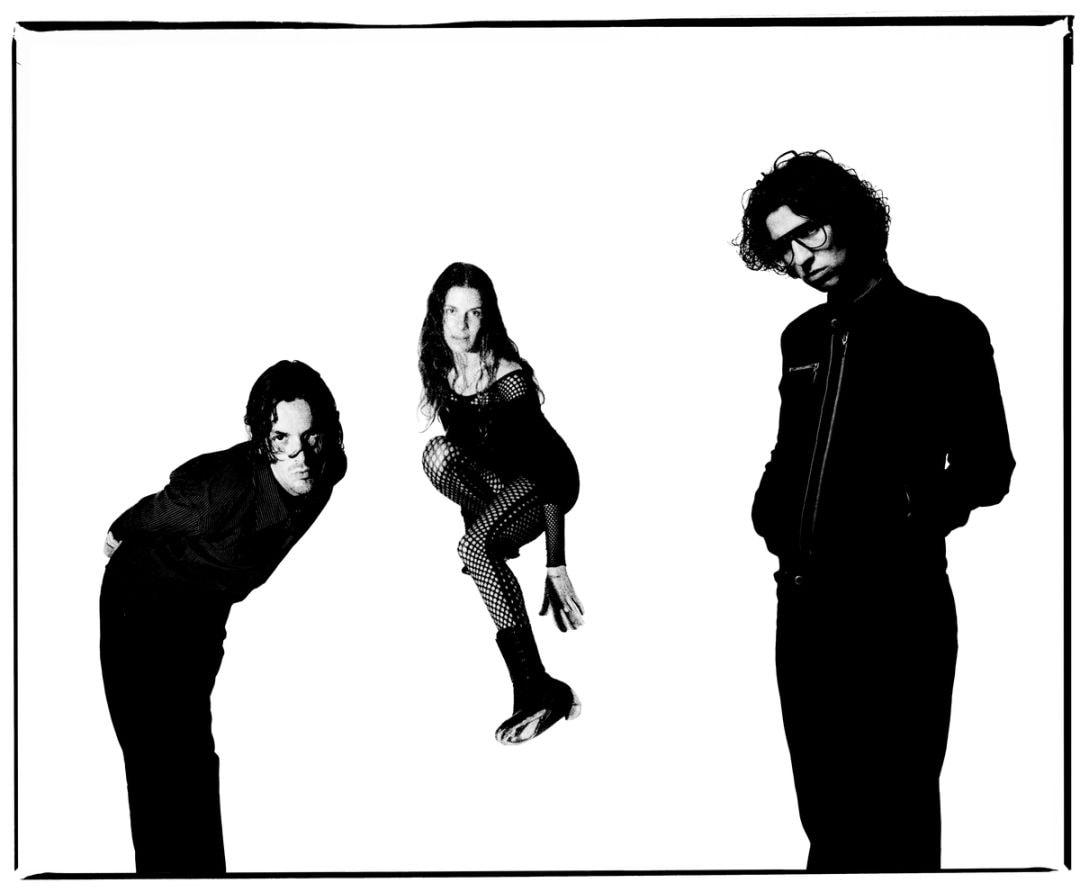
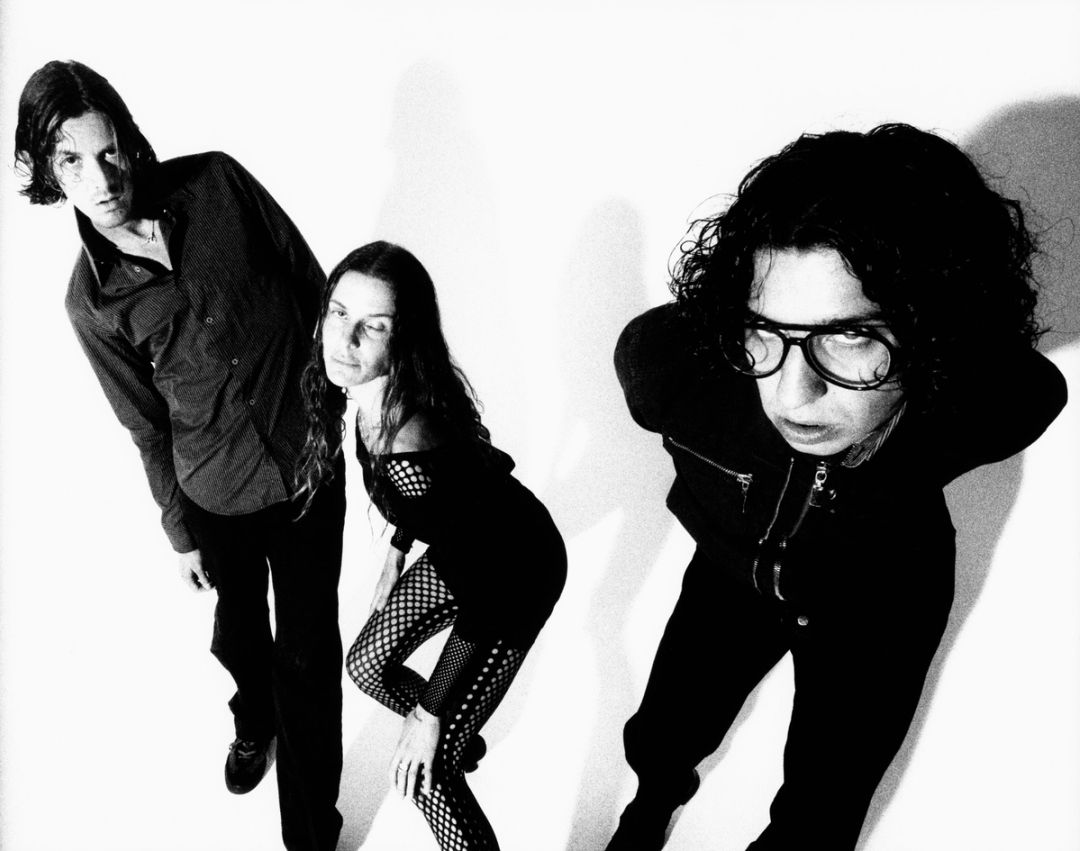
Credits
- Text: Phillip Pyle
- Photography: Steve Gullick
Related Content
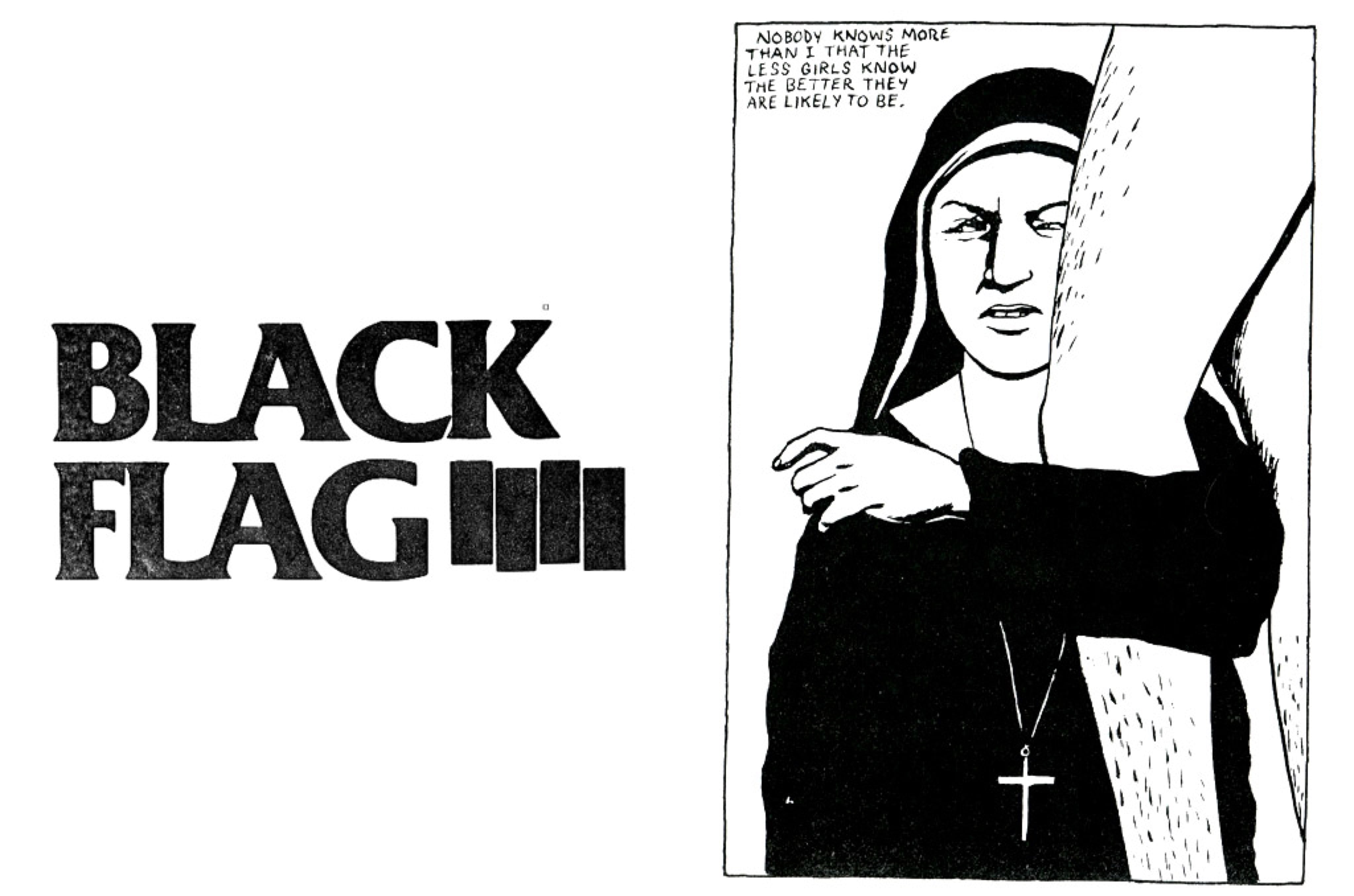
Surprisingly slick art direction from the chaotic world of hardcore punk
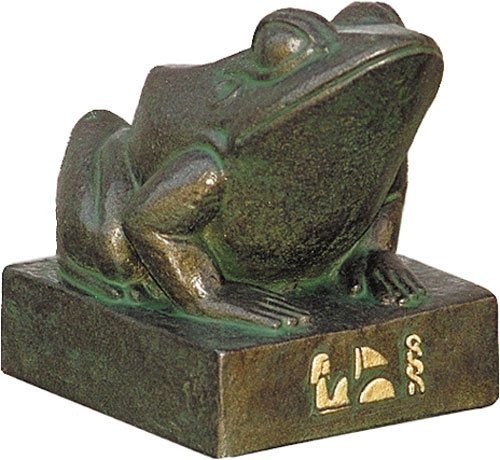
Weaponized Irony: A Roundtable on Trolling and Politics

An Analysis of The Backrooms—Also Known as the Internet's Horror Rooms
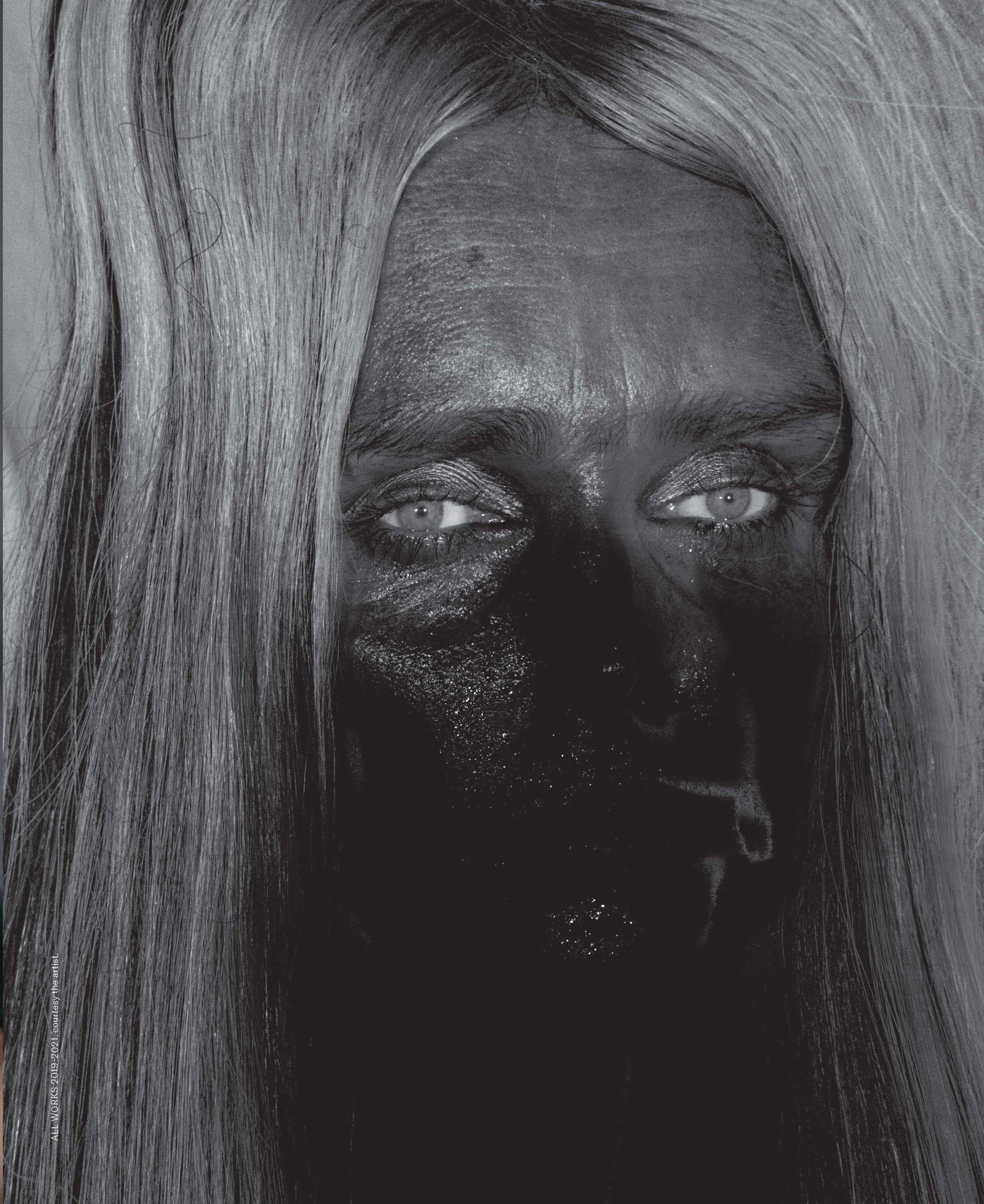
GRUPPE Wants to Haunt and Heal You
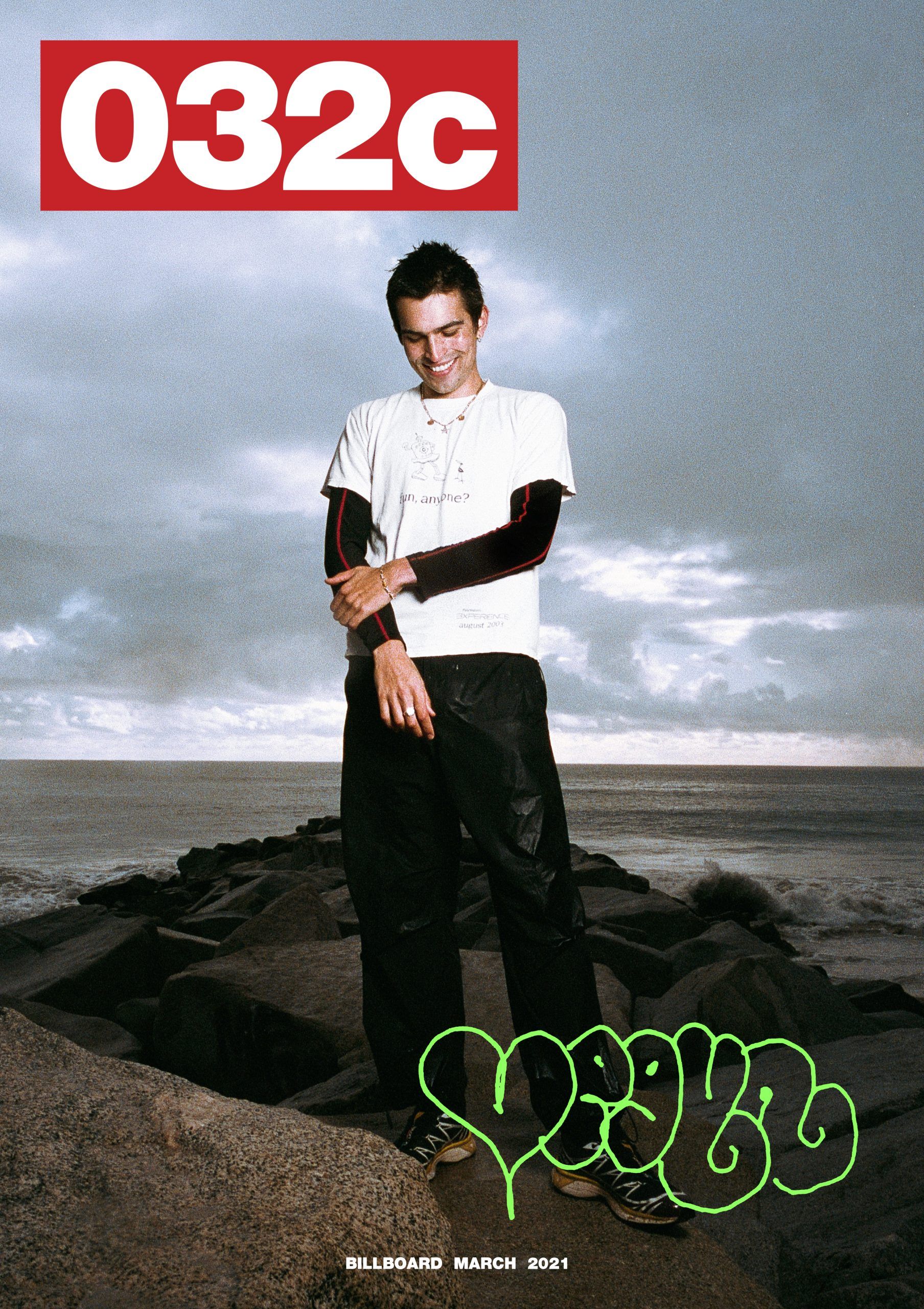
VEGYN: Get Uncomfortable
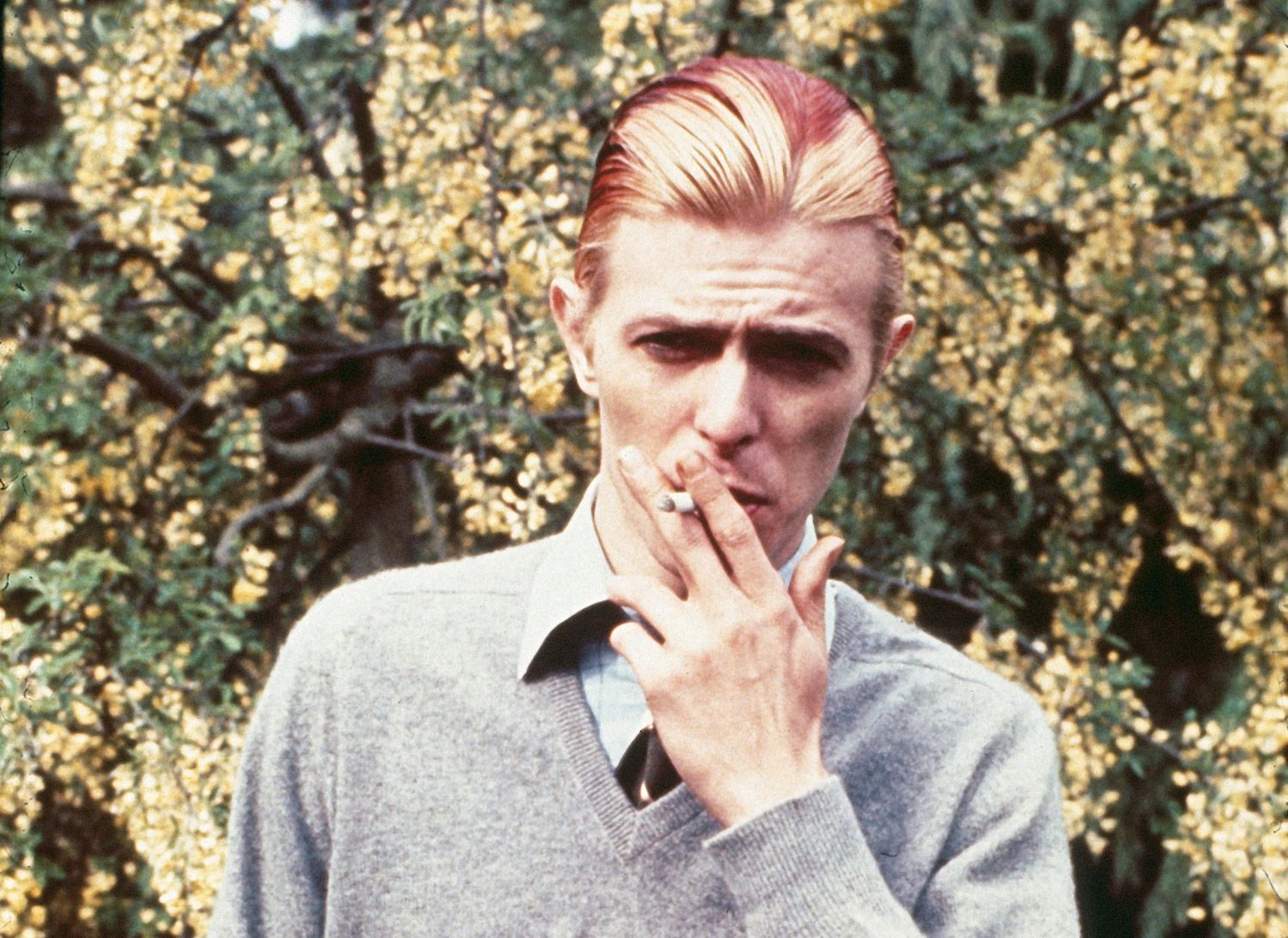
The Man Who Came From Hell
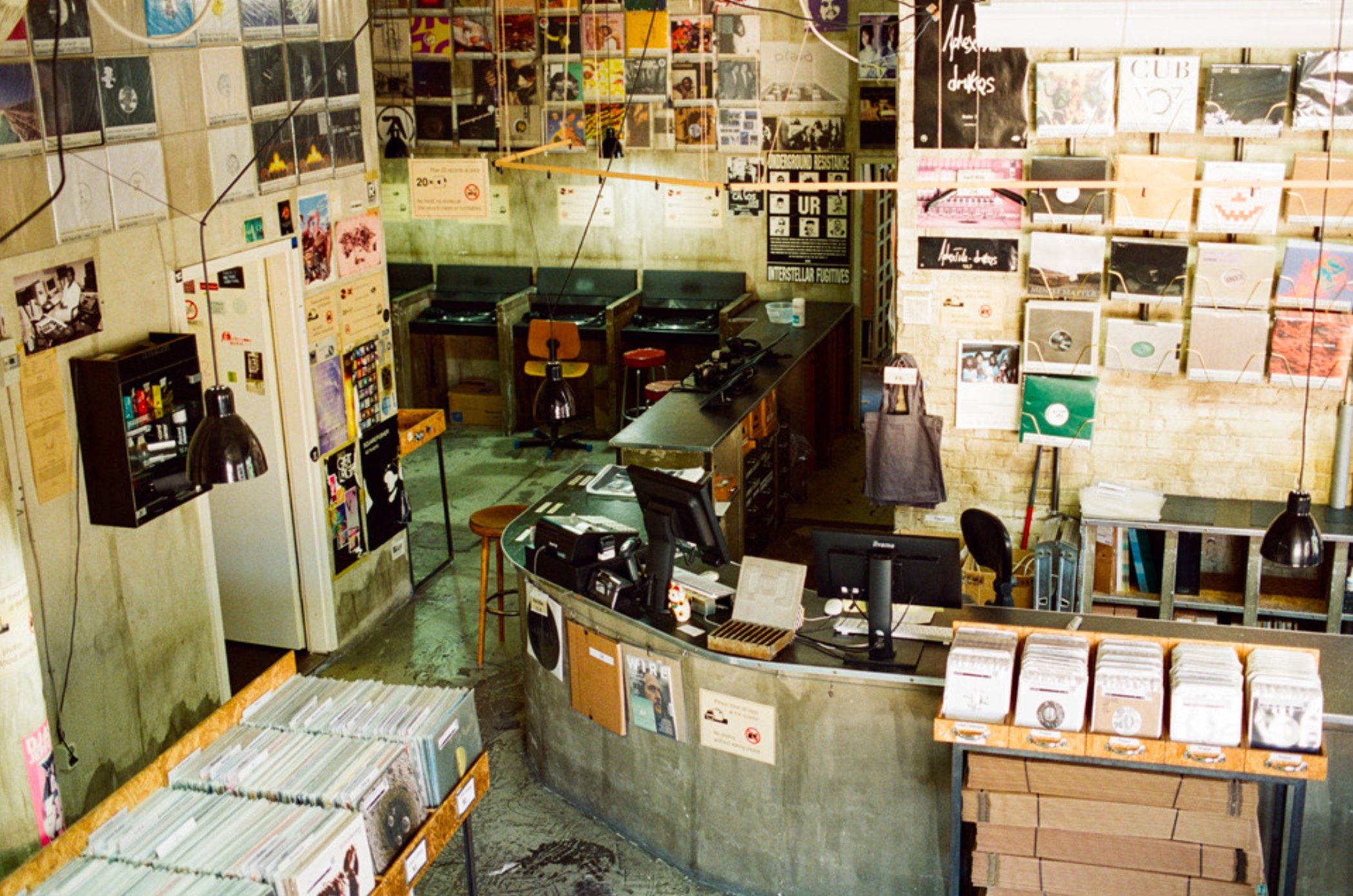
Berlin’s Sonic Mecca
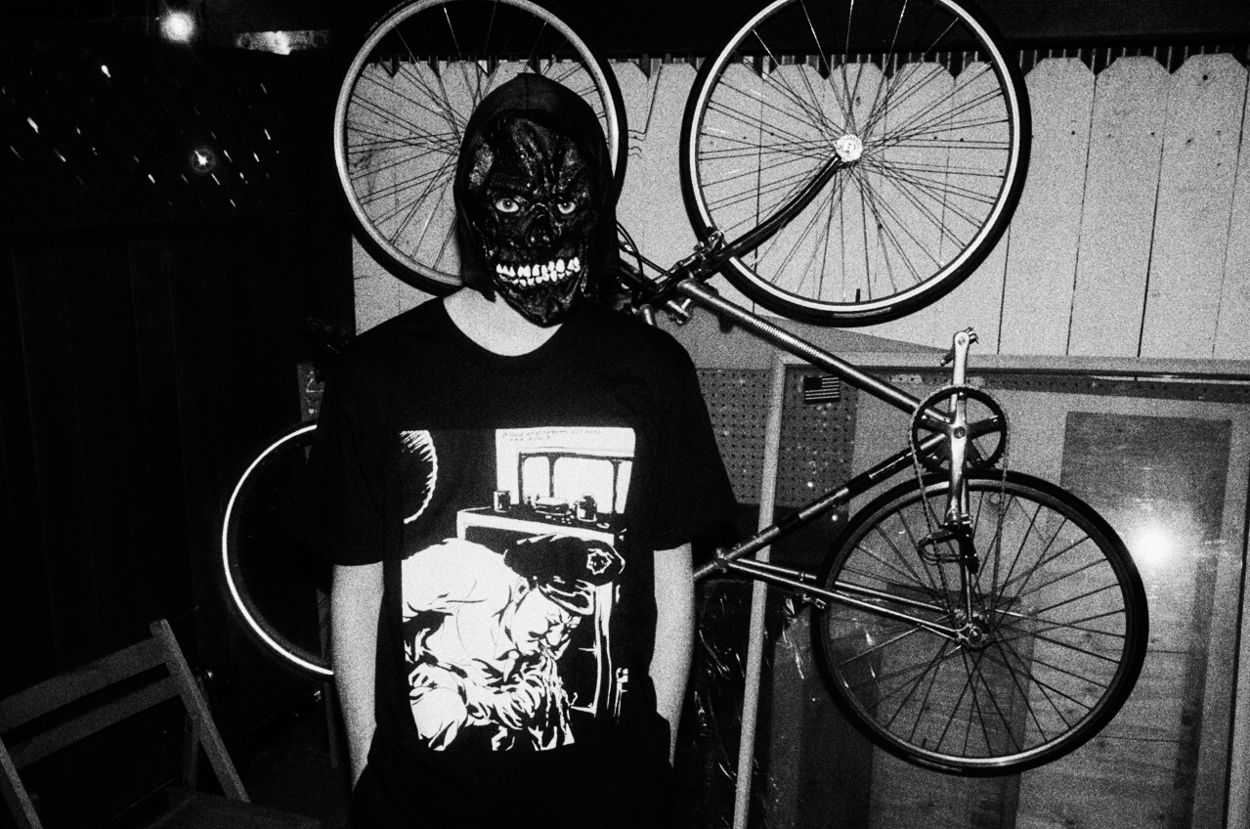
Video Premiere: SUPREME Goes Inside the Studio of RAYMOND PETTIBON